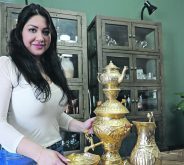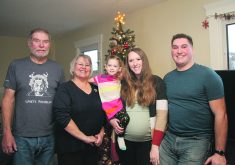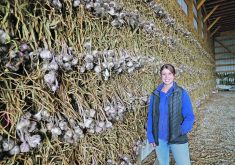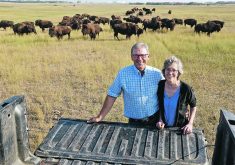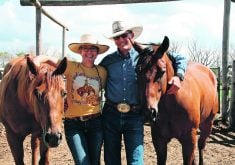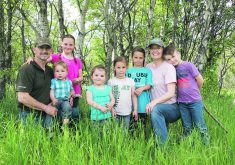On the Farm: They decided to see if they could turn a pig into bacon and ended up with a larger diversification project
LOUGHEED, Alta. — Diversifying the farm doesn’t always mean switching crops or buying more land.
Sometimes it is as simple as making your own bacon.
When Dan and Shelly Skoberg tackled making bacon from their farm-raised pig, neither thought it would turn into a farm business. Making their own bacon was one of those mid-pandemic experiments. Food security was on everyone’s mind and why not gain a new skill while filling the family freezer.
“After some trial and error and talking and sampling and tweaking we got overwhelming support. We decided it was something we wanted to venture into. It wasn’t just us enjoying it, it was everyone else enjoying it,” said Dan.
It was such a success, a few months later the family built a commercial meat shop on the farm, took the required safety and training courses, hired staff and were in business. Depending on the season, Twin Oak Farms bacon facility makes between 500 and 1,000 pounds of flavoured, smoked, dry-cured bacon each week.
“The word started spreading and people started contacting us,” said Shelly.
Together, the family dreamed up seven bacon flavour ideas from apple pie to maple bourbon to sweet jalapeno.
“We always do bacon wrapped jalapeno and thought what if we had jalapeno-flavoured bacon,” said Shelley, who added their family’s love of cooking led to the apple-pie-flavoured bacon.
With a focus on sourcing local ingredients, the family also concentrates on selling their bacon through local small businesses in central Alberta.
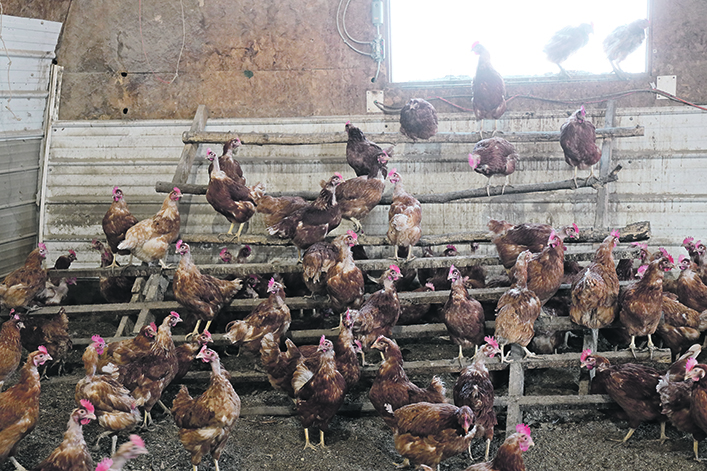
“We want to stay local. The Lougheed bakery has our bacon. We sell it to them wholesale and they retail it out. Not only does it help us, but it helps another small business in our local area,” said Shelly.
Added Dan: “The path we wanted was to support local. The big thing during COVID was to support local and that is what we wanted.”
They also sell their bacon through sports and community fundraisers. It is a way to help the local community groups and have more bacon lovers embrace their product.
“Our short-term goal is to support everything that is local. Our county has been really good, our town has been really good. We don’t want to go anywhere. Right now, it is part of our farm. It is just another branch on the tree,” said Dan.
Diversification is not something new in the family. Shelly grew up on an acreage near Ranfurly where they owned a petting zoo. During the summer, Shelly and her brother would pack up their collection of creatures and go on the road.
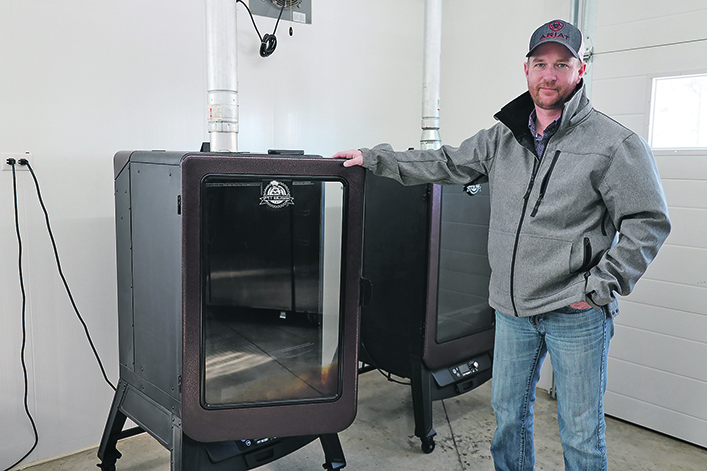
“We went to all the little town fairs. Lots of seniors came out on buses, school groups, lots of kindergarten and preschools came. They got to ride the ponies and feed the babies,” said Shelly.
“We were known as the Ranfurly funny farm.”
The petting zoo had ostriches, peacocks, ring-necked pheasants, golden pheasants, llamas, barbados sheep, fainting goats, highland calves, bison, elk and a myriad of other animals.
“We downsized when my brother went to university and when I went to college Mom and Dad called it quits. It was more or less for my brother and I to learn hard work. That was our money. My brother had laying hens and I had meat rabbits. We didn’t do the whole student loan thing because we built up our money through the farm thing,” she said.
Children earning their own money is the philosophy adopted by Shelly and Dan for their blended family of five ranging from 20 to 12.

Shortly after Dan and Shelly married, her father gave them a chicken coop and 20 laying hens. The chicken business has grown to 300 and it is the children’s job to look after the business from collecting and washing the eggs to feeding and cleaning the barn.
“We both grew up working and both grew up with an allowance. If you wanted money, you had to go out and earn it. We strongly believe that worked really well for us and we have raised our children with the same theory. If they want some money they have to go out and feed their chickens,” he said.
They also raise 20 feeder steers as a family. With only one child left in 4-H, the family still has a pen of market steers to raise and sell to friends and neighbours. Each child gets a steer and it’s their job to raise, feed and bed the animals.
“At the end they sell them. They don’t get to keep that money, it goes into saving for trucks or college,” said Dan.
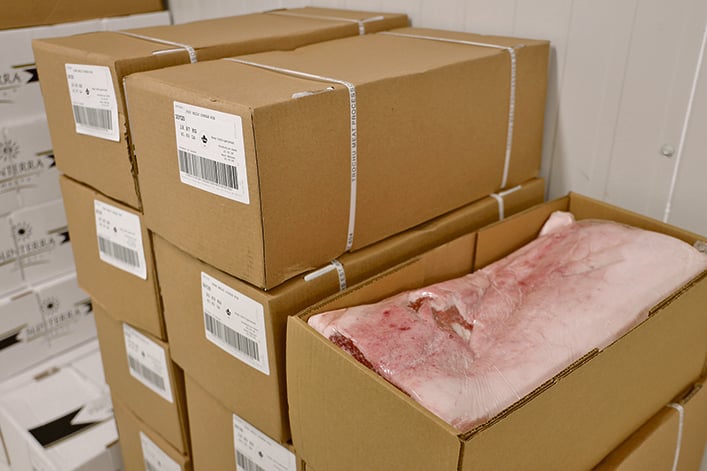
Just like a 4-H project, the children must keep records of the cost to keep the animals.
“At the end of the year, we see if we have made money or lost money. It is not just a way for them to get out of the house and do chores. It is a way for them to figure out the economics of having animals and the ups and downs every year,” she said.
Recently they pulled out last year’s record books and compared the price of grain and feed to see the difference in costs from one year.
While it is still too early to know if one or more of the children want to carry on the farm, it is still a dream to continue the farm that has been in the family since 1905, said Dan.
“It is five generations strong. I don’t want to give up on that. It is the ultimate goal, the family farm.”



